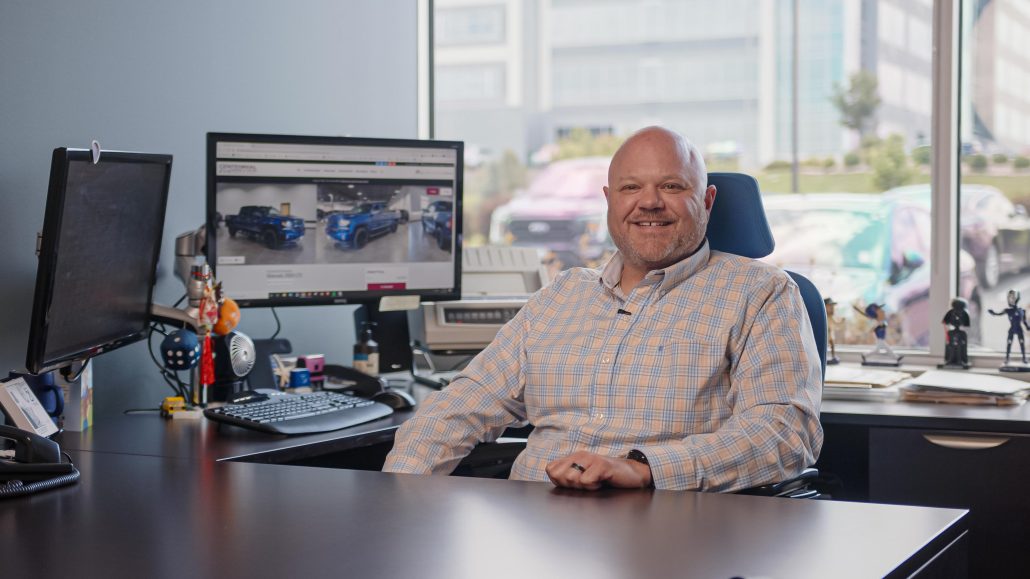
How to Avoid Upselling at the Car Dealership
You’ve found the perfect car and negotiated a great price. Just when you think the deal is done, the finance manager starts pitching extra protections and warranties. Before you know it, your monthly payment has jumped significantly. This isn’t uncommon—many buyers in Denver end up paying hundreds or even thousands more than they intended due to upsells.
Upselling is a common sales tactic where a dealer persuades you to purchase additional products or services beyond the base price of the car. While some add-ons can be useful, many are unnecessary and overpriced, and these add-ons can often be replaced by cheaper alternatives elsewhere.
What is the best way to avoid an upsell at the car dealership? Be prepared.
In this blog, you’ll find expert tips for avoiding upsells, cost-effective alternatives, and the best strategies for buying a car in Denver without being pressured into purchasing unnecessary add-ons.
How to Avoid Upselling at a Car Dealership
Car dealerships have been known to mark up their add-ons by as much as 170%. With upsells as a major component of revenue, salespeople will push for these extras. The most effective way to eliminate upsells is to avoid dealerships entirely and work with an auto broker. But if you have the extra time to spend negotiating, here are some tips to help you avoid upsells.
The #1 Tip: Enter the Dealership with a Plan
The best way to avoid upsells at a car dealership is to know what you want before you walk in. Research your vehicle, financing, and any necessary add-ons before stepping onto the lot. If you already know what you need and don’t need, it’s much easier to say no to unnecessary extras.

Skip the Upsells
Additional Tips to Stay in Control
- Negotiate the Car Price First – Lock in the price of the vehicle before discussing any add-ons. This keeps the dealer from bundling extras into the overall deal.
- Stick to Your Budget – Salespeople will try to frame add-ons as “just a few extra dollars a month.” Instead, focus on the total cost and avoid exceeding your predetermined budget.
- Decline Offers Firmly and Politely – Salespeople are trained to counter your objections. A simple “No, thank you” is often more effective than engaging in a drawn-out discussion.
- Be Ready for the Finance Manager’s Final Push – Once you decline add-ons from the salesperson, the finance manager may try again. Be just as firm with them as you were before.
- Do Your Own Research – If an upsell interests you, take the time to compare prices elsewhere before committing.
- Be Willing to Walk Away – If the dealer insists on extra fees or add-ons, don’t be afraid to leave. Often, this will make them more willing to remove unnecessary costs.
3 Common Upsells to Watch out For (and Why to Avoid Them)
Extended Warranties
- What it is: A service contract that extends the manufacturer’s warranty for repairs beyond the original coverage period.
- What to watch for: Ask to see the contract before agreeing. Read the fine print carefully and compare third-party options.
- Potential Cost: $1,000 to several thousand
- Why it’s not worth it: Many modern cars come with solid warranties, and most major issues arise well within the manufacturer’s coverage. Additionally, extended warranties are often sold by third-party providers, meaning if you need a repair, you may have to deal with a separate company, which can be a hassle. Some warranties also have exclusions for wear and tear, pre-existing conditions, or certain components like brakes, tires, or batteries—often the very things that are most likely to need repair.
- When it might be useful: If you’re buying a used car with limited remaining factory warranty or a model with a history of reliability issues, an extended warranty may offer peace of mind. Just make sure it covers major components without excessive exclusions.
VIN Etching
- What it is: The process of engraving the car’s vehicle identification number (VIN) onto the windows as a theft deterrent.
- What to watch for: Check if VIN etching is already included by the manufacturer or your insurance company before paying extra at the dealership.
- Potential Cost: $250 or more
- Why it’s not worth it: Most insurance companies don’t offer meaningful discounts for VIN etching, and better theft deterrents are available. You can also have it done elsewhere for a fraction of the cost.
- When it might be useful: If your insurance company offers a significant discount for VIN etching (rare), it may be worth considering—but not at dealership pricing.
Paint and Fabric Protection
- What it is: A sealant applied to your car’s paint or interior fabric to prevent stains and fading.
- What to watch for: Ask what specific product is being used and compare it to professional detailing services or DIY alternatives.
- Potential Cost: $500 or more
- Why it’s not worth it: High-quality wax or ceramic coatings can be applied elsewhere for a fraction of the dealership’s cost.
- When it might be useful: If you want added protection for your car’s paint or interior but don’t want to apply it yourself, a professional detailing shop can provide a more cost-effective service.
Take Control of Your Car Buying Experience
Upsells can quickly add thousands of dollars to your car purchase, and many of them offer little real value. Knowing which upsells to avoid and how to stay firm in your decision can keep you from overpaying. By following these tips, you can take control of your car-buying experience and avoid unnecessary extras. Remember: in most cases, it’s best to avoid all add-ons offered by the dealership.
Since 1989, Centennial Leasing & Sales has helped car buyers navigate the process with transparency and expertise. We believe in fair pricing, honest advice, and making sure you get the right car—without unnecessary add-ons or high-pressure tactics. With thousands of satisfied clients in Denver, we’re here to simplify your car-buying experience and help you get the best deal without the hassle.